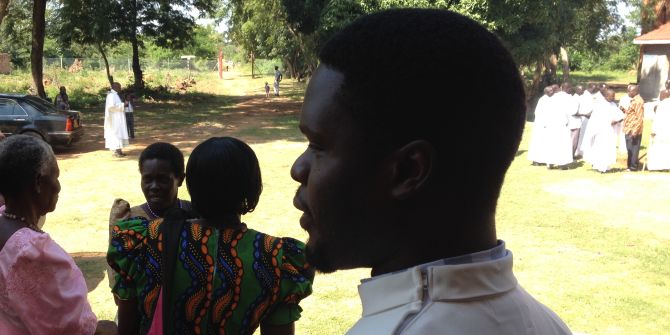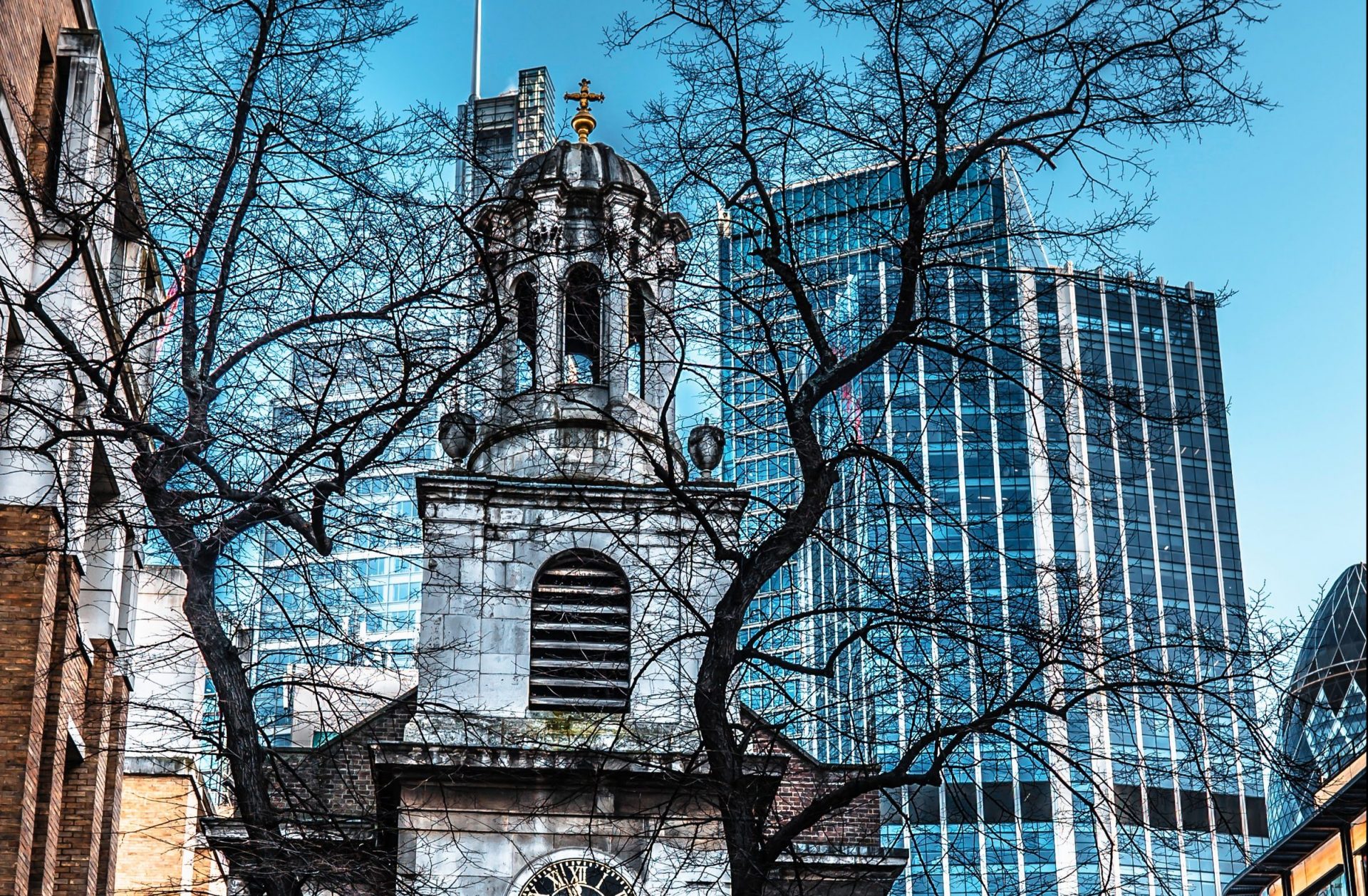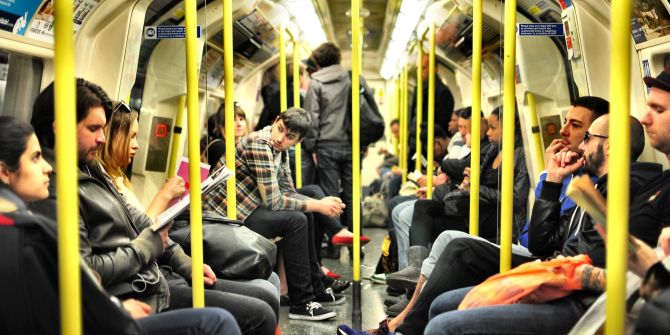Much academic and popular literature portrays Africans as more innately religious than other people. Ben Jones challenges this assumption. Citing his experience in Uganda and the work of other academics, he stresses the importance of looking beyond personal religiosity to the social institutions and wider cultural norms often present across the continent. In this way, religion in Africa is not reduced to something innate and mysterious, but is instead socially situated.

“It is largely through religious ideas that Africans think about the world today”. This phrase first appeared in a paper on religion and politics in Africa in the late 90s. It recently appeared in a blog entry on these pages about Christianity and LGBTQ rights, crops up in other places, and continues to shapes many of the claims that donor and development agencies make about the value of working with faith-based organisations in Africa.
It makes intuitive sense. Africans look like spiritual people. Religion seems to matter more there than in other parts of the world. It is sometimes argued that Africans are more “believing” in how they see the world. This vision of the continent appears on the BBC website when reporters write about the killing of Albinos for their body parts in Tanzania and Malawi. Meanwhile any summertime visitor to Uganda, where I work, can see the power of religion in the number of young American evangelical Christians visiting the country. For scholars interested in religion in Africa, it is self-evident that Pentecostal or ‘renewalist’ forms of Christianity are the most important ways into understanding the relationship between religion and social change on the continent.
I would like to challenge this a bit. As Robert Orsi, Professor of Religious Studies at Northwestern, argues, if ‘religion itself is understood to be primarily and fundamentally a matter of belief’, there is the risk of constructing ‘religious actors as mindless practitioners’.
In a paper titled ‘Confronting Categorical Assumptions about the Power of Religion in Africa’, Maia Green challenges this view of Africans as ‘mindless practitioners’. Green wants to question the view that ‘religion not only matters [in Africa] more than in other places, but that the content of its mattering is more entrenched, more meaningful, more enmeshed in cultural practice than virtually anywhere else in the world’. Green suggests that this position is more often presumed than demonstrated. Political scientists fall back on a notion of “culture” to suggest that Africans are different from those in other parts of the world in how they approach politics. Anthropologists often turn to the most “exotic” forms of religious expression: Pentecostal megachurches; witchcraft and “occult economies”; radical religious movements, thus ignoring their discipline’s claim to be interested in the mundane or the everyday.
Green is not arguing that religion is unimportant in Africa. Nor is she saying that beliefs or culture have no place in the study of social change on the continent. Rather, Green is saying that studies of religion should be less reductive and more open to the way in which religious ideas ebb and flow over time and space. This means checking our assumptions and focusing on social institutions and the wider landscape in which religious actors and practices are found. It also means repeatedly asking ourselves methodological questions about how we and others study religion.
Green’s argument resonates with my own experience working in eastern Uganda. I did not find a tidy world of believers. Though Pentecostal Christianity was of growing importance in the area, this was less about the particular power of a certain set of “beliefs” than it was a way of moving on from the violence of a civil war. Moreover, a language of proper behavior and respectability that Christians liked to talk about were also things that mattered to others in the area. There was also social criticism. Poorer people in the area failed to see much difference between parish priests and local government officials; they were all “big men”, questioned for their corruption, who were more interesting for their connections to NGOs’ development money.
A recent paper by Daniel Wroe looks at what happens in the home of an archetypal believer: a Baptist pastor in rural Malawi. Wroe shows how the pastor feels that prayer and God’s grace should heal his sick brother. The pastor, David, feels pressure from those around him to act on the religious ideas it is his job to profess. He is also trying to emulate some of the richer pastors from the capital, Lilongwe, as he hopes one day to move to the town. His own church is not doing that well, and he collects only about $3 at a Sunday collection. The cost of going to the clinic weighs on him and his family.
In the course of the article, Wroe shows that David never seems to waver in his outward commitment to prayer and God’s grace. But other family members feel that medical help is in order, and though David takes his brother for healing prayers, he also ends up taking him to a clinic when things take a turn for the worse. Some pills are prescribed for what turns out to be a case of stomach ulcers and his brother gets better.
There is nothing remarkable in Wroe’s account. He shows the ordinary way in which religious ideas ebb and flow, and that David’s concern with Christian ideas of grace and his faith in prayer are tempered by the concerns and doubts of other family members. David’s actions are also influenced by his position as a pastor, and the relative poverty of his congregation and family. He wants to show that prayer can heal, he has to weigh up the cost of medical care and his responsibilities as an elder brother. The case is mundane and recognizable, and the people involved are very far from being unquestioning believers.
Which returns us nicely to Green’s concern with challenging our assumptions about what we mean when we talk about religion and belief in Africa. We must be careful of claims about Africans being defined by their religion. To get away from a sort of circular argument that Africans believe because they are somehow innately gifted at believing.
At a time when social media and mainstream reporting emphasizes a more chaotic and catastrophic vision of the present and the future, it is worth remembering that many people in ‘religious’ Africa do not go to church, that there is variation on the continent, that a Baptist pastor mixes healing prayers with pills from a clinic. It is sometimes helpful to go beyond belief when thinking about the role religion plays in Africa.
About the author
 Ben Jones is Senior Lecturer in International Development at the University of East Anglia. He has conducted long-term ethnographic fieldwork in eastern Uganda. His book, Beyond the State in Rural Uganda was awarded the Elliott P. Skinner Prize by the American Anthropological Association.
Ben Jones is Senior Lecturer in International Development at the University of East Anglia. He has conducted long-term ethnographic fieldwork in eastern Uganda. His book, Beyond the State in Rural Uganda was awarded the Elliott P. Skinner Prize by the American Anthropological Association.
Note: This piece gives the views of the author, and not the position of the LSE Religion and Global Society blog, nor of the London School of Economics.






Thanks for the research made and it has been wonderful
can I have the copy of your book please?
Adane